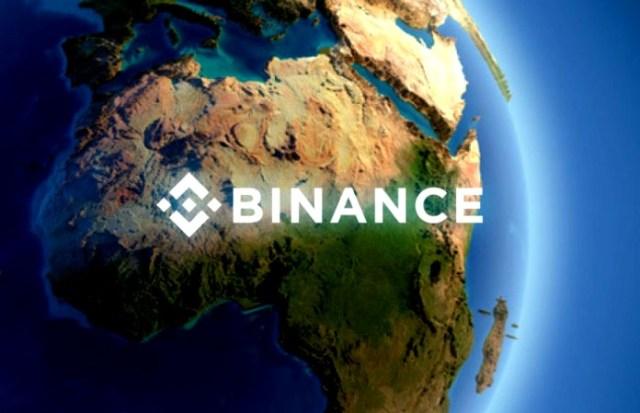- The Binance crypto exchange platform has restricted the personal accounts of 281 Nigerians over security concerns
- “All non-law enforcement-related cases will be resolved within two weeks,” Binance noted
- Despite the Central Bank of Nigeria opposing crypto, it has fully embraced a digital currency, the eNaira
- Does the eNaira serve the same purpose as cryptocurrencies?
Cryptocurrencies in Africa
The Binance crypto exchange platform has restricted the personal accounts of 281 Nigerians dealing in cryptocurrencies in africa over security concerns. Binance has acted to comply with anti-money laundering regulations and protect the security of the 28.6 million traders on the platform.
Thirty-eight percent of the restricted cases had come from a request by international law enforcement agencies. The exact reason for the banning of the accounts remains unclear.
Binance Holdings Limited, in a statement on their website, said protection mechanisms such as know your customer, collaboration with law enforcement, anti-money laundering measures, and account restrictions are in place to ensure the Binance community remains protected.
Read: How safe are digital currencies and are they legal?
Recently, many Nigerians trading on the Binance platform complained about initiating or completing transactions.
Some of the affected persons have taken to social media calling out crypto for “targeting Africans, especially Nigerians”, as their accounts have been suspended for reasons oblivious to them.
Some users say that they have been told to contact the Federal Bureau of Investigation (FBI) and New York Police Department to resolve transactions issues, a situation they claim to be absurd.
Crypto traders in the West African country have experienced trading challenges following the Central Bank of Nigeria asking lenders in 2021 not to transact with cryptocurrency exchanges. The Central Bank further ordered digital currency traders to shut down accounts.
Despite the government’s stand on crypto, Nigerians continue to trade in virtual currencies to remit money and hedge against inflation of the naira.
Binance has resolved 79 of the account restrictions cases and plans to dispose of more customer service personnel and risk evaluation agents to resolve the remaining cases.
“All non-law enforcement-related cases will be resolved within two weeks,” Binance noted.
Despite the Central Bank of Nigeria opposing crypto, it has fully embraced a digital currency, the eNaira. One would ask, does the eNaira serve the same purpose as cryptocurrencies?
Does the eNaira hold any economic advantages for Nigeria?
Many Nigerians have been sceptical about the eNaira, questioning how a digital currency works and whether the country needs one.
The government introduced the eNaira to protect their currency against inflation. Could cryptocurrencies serve the same purpose?
Following the oil prices crash in 2014, the economy of Nigeria has struggled to stay afloat, including the naira. The value of the national currency has plunged by an estimated 160 per cent against the dollar since 2012, a steep drop that has spiked inflation.
The official exchange rate stood at 415 nairas a dollar in February and above 560 on the street. The impact of these figures holds a lot of weight because imports make up 65 per cent of Nigeria’s total trade, and the naira-dollar exchange rate is central to most of these transactions.
The Central Bank of Nigeria has promised that the eNaira will help increase cross-border trade, improve financial inclusion, strengthen social interventions, and bolster Nigeria’s monetary policy and payment systems.
Read: Ghana, Nigeria digital currencies sabotaging West Africa’s Franc.
FP reports that 75 per cent of informal cross-border trade in West Africa does not reflect in national economic statistics. Roughly 38 million Nigerians don’t have access to banks and other formal financial services. Government-funded cash transfer programs in the country have a way of not reaching the poor Nigerians who need them most.
How safe is the eNaira against hackers and fraudsters?
The director of the Corporate Communications Department of CBN, Osita Nwanisobi, disclosed a new technology to prevent eNaira cybercriminals. Other measures include making individual passwords up to twelve digits difficult to hack.
“eNaira is the digital representation with the equivalent of the physical naira; the only difference is that, while one is physical, the other is virtual,” Mr Osita stated.
The eNaira app has garnered over 100,000+ downloads on the google play store in a country with over 101.7 million mobile internet users. The popularity of the eNaira is still shaky, and the government has a lot to do to make it a flawless mode of payment in the country.
Read: Crypto Africa: Nigeria Launches National eNaira
